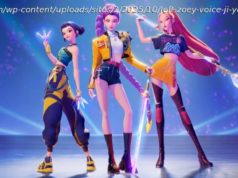Steven Mnuchin, the Treasury secretary, said that the administration would not interfere with the decisions of the Federal Reserve or move to manipulate the value of the dollar.
BUENOS AIRES — At a gathering of finance ministers from the world’s largest economies on Saturday, Steven Mnuchin, the Treasury secretary, sought to clarify remarks by President Trump this week, insisting that the administration would not interfere with the decisions of the Federal Reserve or move to manipulate the value of the dollar.
The comments, made on the sidelines of the Group of 20 gathering in Argentina, came a day after Mr. Trump lashed out at China, the European Union and the Federal Reserve, saying they were all putting the United States at an economic disadvantage.
Mr. Mnuchin was preparing to address currency concerns with his counterparts at the meeting, which is expected to be tense because of an escalating trade war. But he first sought to defuse any tension between the Fed and the president, who a day earlier had criticized the central bank for raising interest rates.
In a series of early-morning Twitter posts on Friday, Mr. Trump said, “Tightening now hurts all that we have done.” Publicly expressing that view broke a longstanding tradition that presidents stay out of monetary policy.
Mr. Mnuchin asserted that the president had no intention of upsetting the established norms, saying, “I fully support the Fed’s independence, as does the president.” Referring to the chairman of the Fed, Jerome H. Powell, Mr. Mnuchin continued, “The president was very clear in saying that he supports Chairman Powell, that he supports Chairman Powell’s determination of interest rates.”
The Treasury secretary, who said that it would be inappropriate for him to discuss interest rate policy, said it was not a mistake for Mr. Trump to do so. He said that he spoke to Mr. Trump about his comments and that the president was voicing a personal perspective, not trying to pressure the central bank.
“Being a real estate person, real estate people obviously follow interest rates,” Mr. Mnuchin said of Mr. Trump.
The president also suggested this week that a “stronger and stronger” United States dollar was “taking away our big competitive edge.” But the United States will not intervene in the currency markets, Mr. Mnuchin said.
“The president is prepared to deal with different issues where he has opinions, but let me be clear, this is not in any way the president trying to intervene in the currency markets whatsoever,” Mr. Mnuchin said, adding that a strong dollar over the long term was in the interests of the United States.
Mr. Trump’s sweeping tariffs on steel and aluminum imports and on $34 billion of Chinese goods have thrown the global trading system into a state of upheaval. Retaliation from the European Union and China is starting to affect American businesses and consumers, and the White House is considering whether to levy a new round of duties on car imports.
Brushing off cries of protectionism, Mr. Mnuchin was preparing to press for a new trade deal between the United States and the European Union that would eliminate all tariffs and non-tariff barriers to trade. The idea, which Mr. Trump has broached before, has emerged as America’s latest strategy to repel accusations that it has abandoned free trade.
“I think the G-7 and the E. U. constantly talk about a rules-based system, eliminating tariffs and trade barriers and how good free trade is for the global economy,” Mr. Mnuchin said in an interview before his meetings. “If they’re sincere, we’re willing to sit down and negotiate those discussions.”
The proposal is largely conceptual at this stage, and it is not entirely clear how it would work. Mr. Mnuchin suggests that the pact would substantially reduce America’s trade deficit with the European Union as a percentage of gross domestic product. However, both sides are likely to seek exceptions and loopholes to protect vulnerable industries such as steel and automobiles in the United States.
Next week, European Union officials, including Jean-Claude Juncker, the president of the European Commission, are to hold additional trade talks with Mr. Trump in Washington. The officials’ visit is an attempt to stave off new tariffs on European car imports.
The United States will have about a dozen bilateral meetings this weekend and will participate in a broader meeting of the Group of 7 countries, which is intended to focus on China’s trade practices. Mr. Mnuchin has no one-on-one meetings scheduled with Chinese officials, but he said that he expected informal talks to take place. (Liu He, China’s vice premier and the country’s top economic official, is not in attendance.)
Thus far, the trade dispute with Beijing shows no signs of abating. Mr. Trump said in an interview with CNBC that aired on Friday that he was prepared to impose tariffs on $500 billion worth of Chinese imports — approximately all the goods China sends to the United States each year — if necessary.
“I’m not optimistic about the prospect that this will get resolved any time soon,” said David P. Loevinger, a former senior coordinator for China affairs at the Treasury, suggesting that the Chinese do not know what it would take to satisfy the president. “My sense is that they are digging in now, preparing for what they see as a protracted trade war with the U. S.”
Sarah Bloom Raskin, a deputy Treasury secretary in the Obama administration, said that the erratic nature of the trade moves by Mr. Trump was most likely straining relations between the United States and its allies.
“Perhaps the staffs of Treasury and the staffs within finance ministries in other countries will continue against all odds to maintain good will,” Ms. Raskin said. “But this wears thin — at our peril — when leadership is so aimless and chaotic.”
Mr. Mnuchin was perhaps most optimistic about Nafta, which could still remain a trilateral deal with Canada and Mexico or be restructured as two separate trade pacts. Despite the recent tension, Mr. Mnuchin said that meetings with Mexico’s incoming administration this month left him hopeful that the pace of negotiations would improve now that elections there are over.
Start
United States
USA — Financial After Trump’s Fed Comments, Mnuchin Tries to Do Damage Control at G-20






